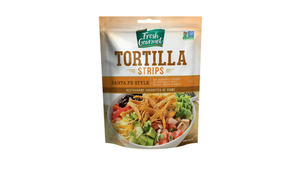STOP & SHOP PLANS INITIATIVES TO STIMULATE LOST SALES GROWTH
QUINCY, Mass. -- Following disappointing second-quarter same-store sales results and increased competition, Stop & Shop Cos. here said last week it will introduce "marketing initiatives" to restore sales growth. Chain officials declined to elaborate on those initiatives, but securities analysts told SN the chain is likely to sharpen its pricing and accelerate its promotional programs. Such moves would
August 21, 1995
ELLIOT ZWIEBACH
QUINCY, Mass. -- Following disappointing second-quarter same-store sales results and increased competition, Stop & Shop Cos. here said last week it will introduce "marketing initiatives" to restore sales growth. Chain officials declined to elaborate on those initiatives, but securities analysts told SN the chain is likely to sharpen its pricing and accelerate its promotional programs. Such moves would be aimed at improving the chain's position against a number of increasingly aggressive New England operators. Stop & Shop operates 130 supermarkets in Connecticut, Massachusetts, New York and Rhode Island. It said it expects to complete its acquisition of 55 stores from Purity Supreme, North Billerica, Mass., next month. Sales for the 13-week second quarter rose 4.1% to $923.3 million and climbed 4.4% for the half to $2.1 billion. However, same-store sales, including replacement units, dropped 0.5% for the quarter, compared with a drop of 0.3% in the first quarter and an increase of 3.5% during last year's second quarter. For the year to date, same-store sales were even, compared with a gain of 3.7% for the same period a year ago. The company said it will release earnings for the quarter and 29 weeks on Sept. 5.
"As the third quarter begins, we believe heavy competitive activity will continue in several market areas," the company said. "Stop & Shop plans marketing initiatives during the remainder of the year to stimulate sales growth." Ed Comeau, a securities analyst with Lehman Bros., New York, said Stop & Shop's marketing initiatives "will involve adopting a sharper competitive profile on pricing and promotions because it's not the type of company that's willing to allow comps to deteriorate by 2%, 3% or 4%. "Rather than watch sales continue to erode, Stop & Shop will
ramp up its competitive profile in the market -- not by initiating a price war but by sharpening its pricing, staying sharp and promoting more on a weekly basis. "Its commitment is not to make a quick competitive splash but to invest in margins for several quarters, he said." Gary Giblen, managing director of Smith Barney, New York, said, "It's clear the company intends to cut promotional prices and offer more deep-cut specials. And it also plans to rely on the Select line of private-label products that it began introducing this month to stimulate sales." Giblen said he believes the initiatives will enable the chain "to regain some sales momentum but at the sacrifice of gross margins, which will make its bottom line weak for an indefinite period, and Stop & Shop will have to ask itself how long it wants to live with lower profitability." Analysts cited several reasons for the chain's lackluster same-store sales results, including a strengthening of competition, particularly Edwards Super Food Stores, Windsor Locks, Conn.; a slowdown in the rate of profitability of Stop & Shop's new stores; ongoing weaknesses in the New England economy; and delays in obtaining approval from the Federal Trade Commission for its acquisition of Purity Supreme. According to analysts, Edwards, has benefited from converting to an everyday-low-pricing program, upgrading its private-label program and introducing stronger perishables programs. Analysts also said the chain has proved to be a tougher competitor in the Rhode Island region since it purchased eight area A&P units. Other operators that have also strengthened their competitive positions, according to analysts, are Shaw's Supermarkets, East Bridgewater, Mass., which has intensified its new store and remodeling programs; Star Market, Cambridge, Mass., which has increased its promotional activity since its sale by American Stores Co. to independent ownership.; the Connecticut division of Waldbaum's, the A&P subsidiary based in Central Islip, N.Y., which has increased its promotional activity; and Big Y Foods, Springfield, Mass., which has opened two additional stores. According to Giblen, "Stop & Shop is still the best operator in southern New England, but it finds itself caught in a pincer between several companies that had been quiescent but now won't go away. "And southern New England is a no-growth area, so Stop & Shop has had to scrap for its share of a fixed pie," he added.
Debra Levin, a securities analyst for Morgan Stanley, New York, said Stop & Shop's margins are likely to improve "once [it gets] over the current competitive trauma as conventional stores are replaced with superstores and the newer superstores mature." She also said Stop & Shop's acquisition of the 55 Purity Supreme stores will produce a drag on earnings during the initial transition period, although it will have a positive impact long-term.
The Purity acquisition, which Stop & Shop originally said would close in July, will now be completed in September, the company said. Of the 55 supermarkets being acquired, analysts told SN they expect Stop & Shop to divest 10-15 units.
Stop & Shop officials said the chain's growth plan remains strong, with at least four more stores expected to open later this year.
About the Author
You May Also Like






